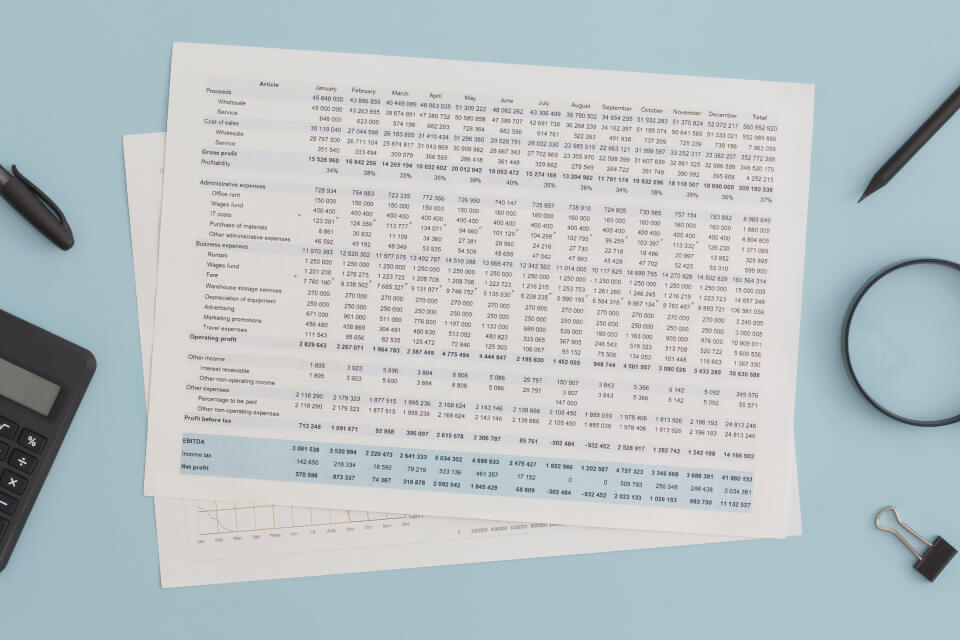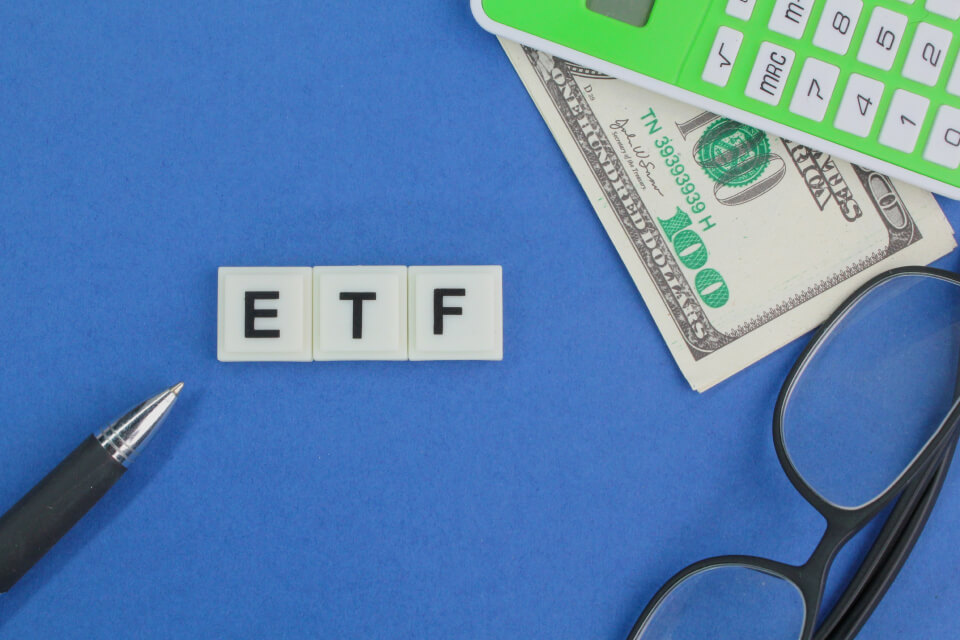- Introduction
- Investment Decisions and Their Impact
- Understanding ETFs and Mutual Funds
- Liquidity and Tradeability
- Cost Efficiency
- Diversification and Market Exposure
- Transparency and Accessibility
- Flexibility and Investment Options
- Tracking Error and Performance
- Tax Efficiency and Potential Capital Gains
- Investor Control and Customization
- Factors to Consider When Choosing the Right Investment Option
- Frequently Asked Questions (FAQs)
- Conclusion
Introduction
In the realm of stock investing, the choices you make today can significantly shape your financial future. As a stock investor, you’re navigating a diverse and dynamic landscape where knowledge is your most valuable asset. Among the myriad of investment options available, two heavyweights often enter the ring: Exchange-Traded Funds, ETFs and Mutual Funds. In this comprehensive guide, we will delve into these investment giants, illuminating their nuances, strengths, weaknesses, and their alignment with various financial objectives.
Investment Decisions and Their Impact
Before we embark on this exploration of ETF investing and Mutual Funds investing, let’s pause to acknowledge the profound impact that investment decisions can have on your financial journey. Your choices in the world of finance can sculpt your wealth, influence your lifestyle, and, ultimately, empower you to achieve your financial aspirations. It’s a realm where knowledge is not just power; it’s the key to unlocking your financial potential.
As an African stock investor, your financial path may be shaped by factors distinct to the African market, including economic conditions, regulatory environments, and regional opportunities. Understanding how ETFs and Mutual Funds fit into this landscape is not just advisable; it’s crucial for making informed and strategic investment decisions.
Understanding ETFs and Mutual Funds
Before we dive deeper, let’s establish a clear understanding of what ETFs and Mutual Funds are and how they operate.
Exchange-Traded Funds (ETFs): ETFs are financial instruments that share some similarities with stocks, but they are distinct in their structure and function. Much like stocks, ETFs are traded on stock exchanges. What sets ETFs apart is their ability to be bought or sold throughout the trading day, just like individual stocks. The prices of ETF shares fluctuate in real time based on supply and demand, offering investors a high level of intraday liquidity.
Mutual Funds: Mutual Funds, in contrast, operate differently. These investment vehicles pool money from multiple investors to create a diversified portfolio of assets, such as stocks, bonds, or other securities. Unlike ETF investing, Mutual Funds are not traded continuously throughout the trading day. Instead, they are priced once a day after the market closes, and investors can buy or redeem shares at the Net Asset Value (NAV) price, which is calculated at the end of the trading day.
Understanding these fundamental differences in structure and trading mechanisms is essential when evaluating which investment option aligns with your financial goals and investment style as an African stock investor.
Key Distinctions
Now that we’ve established the basics let’s highlight some key distinctions between ETFs and Mutual Funds, which will be further explored in this guide:

Liquidity and Tradeability
Liquidity in ETFs and Mutual Funds
In the world of stock investing, liquidity is a vital aspect that can greatly influence your investment decisions, especially if you’re an African stock investor with dynamic market conditions to navigate.
ETFs – The Liquidity Kings: ETF investing reigns supreme when it comes to liquidity. They are renowned for their high liquidity levels, offering investors a remarkable degree of flexibility. Picture this: You’re watching the market, and an opportunity arises. With ETFs, you have the power to seize that opportunity instantaneously. Whether it’s the Johannesburg Stock Exchange (JSE), the Nairobi Securities Exchange (NSE), the Nigerian Stock Exchange (NSE), or any other global exchange, ETFs can be bought or sold throughout the trading day. The prices of ETF shares are in constant flux, determined by the forces of supply and demand. This liquidity is a potent tool in the hands of investors, enabling quick trading decisions and capitalizing on market fluctuations.
Tradeability: Mutual Funds vs. ETFs
Now, let’s turn to the world of Mutual Funds. While they do offer liquidity, Mutual Funds follow a different rhythm compared to ETFs.
Mutual Funds – The Net Asset Value (NAV) Price Rhythm: Mutual Funds operate under a different set of rules. Unlike ETFs, Mutual Funds do not provide the same level of intraday tradeability. Instead, they follow a more measured tempo. Here’s how it works: When you invest in a Mutual Fund, you are not buying shares at a price determined by market demand at that very moment.
Instead, you execute your order at the Net Asset Value (NAV) price, which is calculated at the end of the trading day. This means that if you place an order to buy or redeem Mutual Fund shares, it will be executed based on the NAV price after the market closes. While this may not be as conducive to quick trading decisions as ETFs, it does provide a certain level of liquidity, ensuring that your transactions are carried out efficiently.
Cost Efficiency
Cost Structures in ETFs and Mutual Funds
As an African stock investor, cost efficiency is an important factor to consider when evaluating your investment options. After all, minimizing expenses can substantially impact your overall returns over the long term.
ETFs – The Frugal Choice: ETFs have earned a reputation for their cost efficiency. One of the key factors contributing to this cost-effectiveness is their lower expense ratios and management fees compared to Mutual Funds. Expense ratios, which encompass various operational costs, tend to be significantly lower for ETFs. This means that a smaller portion of your investment returns is siphoned off by fees, leaving more of your hard-earned money to grow and compound over time. For African stock investors, this can translate into higher returns over the long term, making ETF investing an attractive option for those who value cost-conscious investing.
Mutual Funds—The Expense Consideration: On the other hand, Mutual Funds, while offering diversification and professional management, often come with higher expense ratios and management fees. These costs can eat into your returns, potentially eroding the gains you make from your investments. African investors need to weigh these expenses carefully, as they can impact the overall performance of their portfolio.
In the African investment landscape, where every percentage point of return matters, the cost efficiency of ETFs can be a compelling reason to consider them as a cornerstone of your investment strategy. However, it’s crucial to remember that cost is just one aspect of the broader picture. Your investment goals, risk tolerance, and time horizon should also play a significant role in your decision-making process.
Diversification and Market Exposure
Diversification is a fundamental principle of investing, and both ETFs and Mutual Funds excel in providing this crucial advantage.
Balancing Risk through Diversification: Diversification involves spreading your investments across a range of assets, such as stocks, bonds, or other securities. The goal is to reduce the impact of poor-performing individual securities on your overall portfolio. Both ETFs and Mutual Funds adopt this strategy, pooling money from multiple investors to create diversified portfolios. This diversification acts as a safety net, mitigating the risk associated with investing in individual stocks or bonds.
However, it’s important to note that the degree of diversification can vary between different funds. Some may focus on a specific sector or asset class, while others offer broader exposure to the market. As an African stock investor, understanding the specific assets within a fund’s portfolio is crucial to ensure that it aligns with your investment objectives.

Transparency and Accessibility
Transparency
In the realm of financial markets, transparency is a prized virtue. It ensures that investors have a clear view of the assets within their portfolios, helping them make informed decisions.
ETFs – A Window into Holdings: ETF investing takes the lead when it comes to transparency. They provide daily transparency into their holdings, allowing investors to know precisely what assets they own. This real-time insight enables you to stay informed about the composition of your investment, which is especially valuable in volatile markets. As an African stock investor, this transparency can empower you to make timely adjustments to your portfolio based on changing market conditions.
Mutual Funds – Less Frequent Disclosure: Mutual Funds, in contrast, typically disclose their holdings less frequently. While they do provide periodic reports, these reports may not offer the same level of detail and immediacy as ETFs. This means that Mutual Fund investors may have less visibility into the exact assets within the fund on a day-to-day basis.
Accessibility
One of the appealing aspects of both ETFs and Mutual Funds is their accessibility, making them suitable for investors of all sizes, from retail investors to institutional players.
Accessible to All: Whether you’re an individual African stock investor looking to start small or a larger institutional investor seeking diversification, both ETFs and Mutual Funds offer entry points. This accessibility democratizes investing, allowing a wide range of market participants to access professionally managed portfolios.
Flexibility and Investment Options
Flexibility in Trading
The Flexibility in trading is a critical consideration, especially if your investment strategy involves active management or reacting to market events.
ETFs – The Intraday Freedom: ETFs stand out in terms of trading flexibility. They can be bought and sold just like individual stocks, providing investors with the flexibility to execute trades throughout the trading day. Whether you’re looking to capitalize on short-term market movements or adjust your portfolio in response to breaking news, ETFs empower you with the tools for swift decision-making. African stock investors who value intraday flexibility may find ETF investing particularly appealing.
Mutual Funds – A Different Tempo: In contrast, Mutual Funds follow a more measured rhythm. Orders for Mutual Fund shares are executed at the Net Asset Value (NAV) price after the market closes. This design is better suited for long-term investors who prioritize a stable, less frantic approach to their investment decisions.
Tracking Error and Performance
Tracking Error in ETFs and Mutual Funds
When evaluating the performance of investment funds, tracking error is a metric that can provide valuable insights.
Understanding Tracking Error: Tracking error measures how closely a fund’s returns align with the benchmark it aims to track. A lower tracking error suggests that the fund is performing as expected and closely following its benchmark. This is an important indicator for investors because it indicates that the fund is achieving its intended investment objective.
Both ETFs and Mutual Funds aim to minimize tracking errors to provide investors with returns that mirror the performance of their chosen benchmark. African stock investors should keep an eye on this metric when assessing the suitability of a fund for their investment goals.
Tax Efficiency and Potential Capital Gains
Tax Efficiency
In the world of stock investing, taxes can significantly impact your investment returns. Understanding the tax implications of your investment choices is essential.
ETFs—The Tax-Efficient Choice: Due to their unique structure, ETFs often shine in tax-efficient investments. They may generate fewer capital gains and tax liabilities for investors than Mutual Funds. This tax advantage can translate into higher after-tax returns, making ETF investing an attractive option for those mindful of their tax obligations.
Mutual Funds—Potential Capital Gains: Mutual Funds may generate capital gains when they sell securities within their portfolio. Depending on their tax situations, these capital gains can result in tax liabilities for investors. African stock investors must assess the tax efficiency of Mutual Funds, as it can vary from one fund to another.

Investor Control and Customization
Investor Control
As an investor, having control over your portfolio is empowering. Different investment vehicles offer varying degrees of control, catering to different investment styles.
ETFs – Intraday Control: ETF investors enjoy greater control over their investments due to the ability to buy and sell shares intraday. This flexibility empowers you to react swiftly to market developments, manage risk, and implement trading strategies that align with your goals.
Mutual Funds – End-of-Day Execution: Mutual Fund investors execute their trades at the end of the trading day, limiting intraday control. While this approach may suit long-term investors, those who prefer more immediate control may find ETFs better aligned with their needs.
Factors to Consider When Choosing the Right Investment Option
As an African stock investor, the choice between ETFs and Mutual Funds should align with your specific financial objectives and preferences. Here are key factors to consider:
Investment Goals: Are you aiming for short-term gains or long-term wealth accumulation?
Time Horizon: How soon do you expect to need access to your investment capital?
Risk Tolerance: Can you tolerate market fluctuations, or do you prefer a more stable investment approach?
Trading Preferences: Do you value intraday control and flexibility, or do you prefer a less active investment style?
By carefully evaluating these factors in light of the distinctions between ETFs and Mutual Funds, you can make well-informed investment decisions that serve your financial aspirations effectively. Remember that there is no one-size-fits-all answer; the right choice depends on your unique circumstances and goals.
Frequently Asked Questions (FAQs)
1. Are ETFs and Mutual Funds the same thing?
No, ETFs and Mutual Funds have distinct differences in terms of how they are structured, traded and their associated costs.
2. Which is more suitable for short-term trading, ETFs or Mutual Funds?
ETFs are generally more suitable for short-term trading due to their intraday tradeability.
3. Do ETFs always outperform Mutual Funds?
Not necessarily. The performance of ETFs and Mutual Funds depends on various factors, including the chosen index or benchmark and the fund’s management.
4. Can I hold both ETFs and Mutual Funds in my investment portfolio?
Yes, many investors diversify their portfolios by holding both ETFs and Mutual Funds to achieve a balance between liquidity and long-term growth.
5. What tax implications should I be aware of when investing in these funds?
ETFs are often more tax-efficient due to their structure, potentially resulting in lower capital gains taxes for investors.
Conclusion
In the realm of stock investing, ETFs and Mutual Funds offer unique advantages and disadvantages. Your choice between the two should align with your specific financial goals and investment preferences. By understanding the nuances of these investment vehicles, you can navigate the world of finance with confidence, knowing that your investment decisions are well-informed and strategic.
When you invest wisely, diversify your portfolio, and consider your goals carefully, you can make the most of your investment journey in the dynamic stock markets. Please note that investment decisions should be made after thorough research and consultation. This guide is for informational purposes only.



